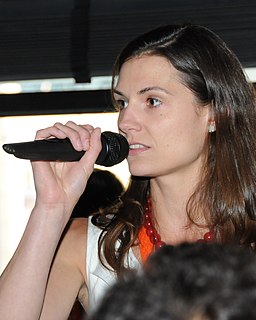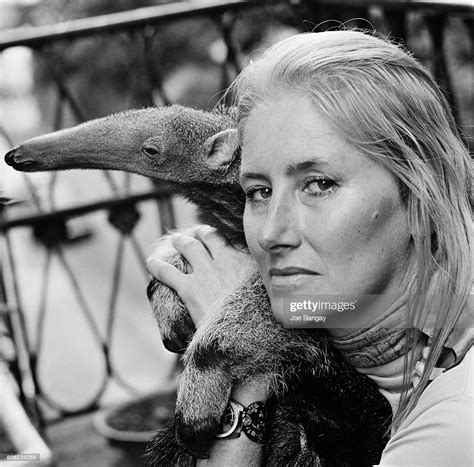A Quote by Krystal Ball
We can all mouth the words that every human is fundamentally worthy, but we don't act like it. We don't even believe it about ourselves.
Related Quotes
And this is how I know that it's all just words, words, words - that fundamentally, they make no difference... Our relationship, for as long as things were good, and in that moment when they could have been good again, was about the irrelevance of words. You feel what you feel, you act as you act, who in the history of the world has ever been convinced by a well-reasoned argument?
The two words that I've arrived at to describe what we all need to feel about ourselves, children and adults, in order to perceive ourselves accurately, are worthy and welcome. If you don't feel worthy and welcome, you really won't know what to do with yourself. You won't know how to behave in a world of other people. You won't think you deserve to get what you need.
In the nature of our existence, we must act to achieve values. And in order to act appropriately, we need to value the beneficiary of our actions. In order to seek values, we must consider ourselves worthy of enjoying them. In order to fight for our happiness, we must consider ourselves worthy of happiness.
Anarchists believe that we can govern ourselves in the absence of coercive and centralized authority; the underlying premise about human nature (to use an infinitely problematized but necessary term here) is fundamentally positive. And the evidence that in disasters people are really pretty kind, generous, brave, resourceful and creative fed that.
Human beings have the incredible capacity for denial. I think they do. And although it's really hard to believe, I have my doubts. But my feeling is that first they have to convince themselves. First they have to justify this stuff to themselves and if they can do that, even for just the moment that it's coming out their mouth, then they can kind of mouth it with kind of believable sincerity, even if some of us.
I certainly self-police my language depending on who I'm talking to. I try to be very careful about using filler words, about not drawling certain vowels, even when I can't say "drawl" without drawling. That's kind of sad, because self-policing inhibits communication. You're more focused on the words coming out of your mouth or that should not be coming out of your mouth than making a connection with the person you're speaking to.
You cannot resist something to which you grant no reality. The act of resisting a thing is the act of granting it life. When you resist an energy, you place it there. The more you resist, the more you make it real-whatever it is you are resisting." "Every human being is as special as every other human being who has ever lived, lives now, or every will live. You are all meesengers. Every one of you. You are carrying a message to life about life every day. Every hour. Every moment.
Most of us, I believe, admire strength. It's something we tend to respect in others, desire for ourselves, and wish for our children. Sometimes, though, I wonder if we confuse strength with other words—like 'aggression' and even 'violence'. Real strength is neither male nor female; but it is, quite simply, one of the finest characteristics that a human being can possess.
The Yogic sages say that all the pain of a human life is caused by words, as is all the joy. We create words to define our experience and those words bring attendant emotions that jerk us around like dogs on a leash. We get seduced by our own mantras (I'm a failure I'm lonely I'm a failure I'm lonely) and we become monuments to them. To stop talking for a while, then, is to attempt to strip away the power of words, to stop choking ourselves with words, to liberate ourselves from our suffocating mantras.
We wake up and go to sleep with ourselves every single day. We see ourselves in the mirror from every angle. We know what we look like. We know what makes us happy about our bodies and what upsets us. And we don't need to value the opinions of others at all - especially from people who that we don't even know, or that we don't care about.
A line runs from the meditations of the heart to the words of the mouth. The meditations are not clear to us until the mouth utters its words. If what the mouth utters is unclear or foolish or mendacious, it must be that the meditations are the same. But the line runs both ways. The words of the mouth will become the meditations of the heart, and the habit of loose talk loosens the fastenings of our understanding.






































